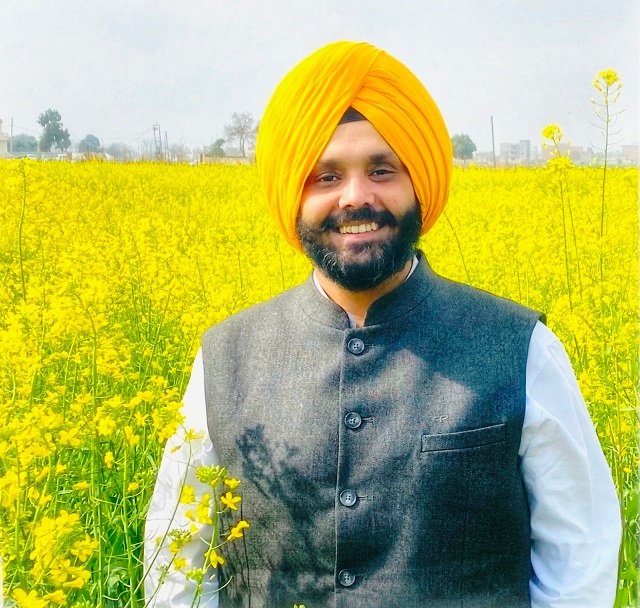Inside BENEO’s new pulse plant: pioneering sustainable protein from faba beans
Recognised as one of the leading agri-tech companies in Asia by the Netherlands-based Rabobank, IIT Kharagpur incubated startup AgNext Technologies aims to solve the problem of food quality to accelerate transactions and build sustainability.
The startup has recently partnered with the Tea Research Association of India to develop a tea leaf quality assessment which today, sits in factories like Goodricke, Rossell Tea, Bokahola Tea & estates of the Tea Board of India, who procure tea leaves straight from the plantation. In line with this new development, Taranjeet Singh Bhamra, Chief Executive Officer and Founder, AgNext Technologies, Mohali spoke to NuFFooDS Spectrum about how the company is building new solutions for the food industry.
Edited excerpts:
How do you plan to bring tech innovations and sustainability to the tea industry with the recent collaboration?
In collaboration with the Tea Research Association, we have successfully set up an AI Excellence Center at Tea Research Institute, Jorhat. This excellence center will focus on innovation, improvement and enhancement of the tea quality across the supply chain and build sustainability at the core. It will also be a go-to destination for Academia and Industry for technical know-how, knowledge, development of unique technologies and application areas. We have already deployed a digital ballometric solution called TRAGNEXT that determines the fine leaves count and surface moisture level of tea leaves without human intervention and removes the subjectivity from the quality assessment process. Now at the excellence center, we will work on developing the solution for multiple level quality problems from garden-to-cup. Valued at $1.65 billion, the Tea industry is one of the oldest industries and has huge potential for innovations
How is AgNext changing the paradigm for food testing and quality space?
Food quality, to ensure compliance with the food safety regulations and to protect public health, has become a must. We have innovated technologies for the midstream of the agriculture supply chain, to solve the problem of quality, which we believe accelerates transactions and builds sustainability at its core. Using state-of-the-art technologies, we have created the right singular platform Qualix through which quality for multiple commodities could be assessed in just 30 seconds. The Qualix AI engine uses molecular analysis, computer vision, and IoT Sensing solutions, delivered through an integrated hardware and software interface for accurate and instant quality analysis of various commodities like grains, oilseeds, pulses, spices, tea, milk and animal feed etc. It analyses every aspect of food i.e., physical, chemical, and ambient for food quality monitoring. By infusing the right technology in place, farmers can obtain accurate prices for their produce and greater incentive to improve their farm practices for better quality crops. For businesses, this technology will help save money and increase profitability. Finally, for consumers, quality will be ensured 100 per cent by accurately ascertaining the presence of any kind of adulterants. We have also pioneered the first applications for LoRA WAN, a proprietary low-power wide-area network modulation technique, which provide quality estimations in multiple agriculture processes in spatial arrangements, like curing, food storage, warehousing, and logistics.
What are the current challenges faced by the food industry in terms of quality checks? What is the way ahead?
The current challenges faced by the food processing industries are that they are still relying on the old conventional methods for food quality assessment. Traditional methods are time consuming, costs high for businesses, are unstandardised and are subject to errors and inaccuracy. So, as the food moves through its value chain, trade assessments of commodities form an integral part of all financial transactions happening across the globe; from farm-gate procurement, trading, warehousing, processing to consumption. However, billions worth of commodities, moving in agricultural post-harvest value chains, lack technologies to get assessed for a transparent, safe, and profitable trade, that leads to unfair prices at the farm gate, food loss at the warehouses (>30 per cent), profit losses at processing (5-10 per cent) and ultimately leading to loss of consumers trust that is invaluable. Agribusinesses worldwide need integrated technology solutions, which can provide instant, on-spot assessments for quality and process monitoring across the value chains.
How is the business coping up with the current pandemic situation?
In the COVID-19 environment the entire supply chain of the agricultural and food industry was brimming with concerns about food safety and quality, months long lockdowns had shuttered and disrupted most of the food value chains. Manpower was absent from the fields, no laboratories working, and no quality tests were being done on the procured/stored/traded food. Amid that scenario, we were fortunate to have worked past few years in digitising agricultural value chains and focused intensely on building technologies for enabling data-driven decisions. Our AI-enabled revolutionary platform Qualix instantly analyses quality and safety and provides traceability of agri-commodities. Our tech had the ability to instantly test trading & safety parameters of agri-commodities, for example, instant on-field analysis for various commodities like grains, spices, milk, tea and animal feed in just 30 seconds.
What plans have you lined up for 2021?
We have raised about $4 million in funding from investors like Omnivore and Kalaari Capital. On the whole, our workforce comprises 100+ employees. We have been constantly hiring talent which we believe will add value to our workforce and make it more strong. We plan to scale vertically and horizontally, and we would be increasing our hirings to more than 150 per cent in the coming year. In particular, the major plans for 2021 will revolve around building more advanced, robust, integrated or customised platforms. Our major focus will be on adding up some new commodities in the existing ones. We are expecting significant growth this year across different commodity verticals. Looking forward to about 10,000+ locations pan India to deploy our solution.
Pooja Yadav

